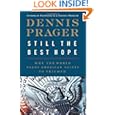
Summer break from teaching! It sounds wonderful and so it can be. It can get a bit boring after a time though as well. It's over 100 degrees outside today. And I'm tired of writing political blogs. So, I thought I would take some time and review these books that I've been reading.
First of all, Wright writes well. (
His website) He's very enjoyable to read and he makes his points clearly. Second, I like his focus on the Gospels. I agree that too often we Christians have ignored them or used them to support Paul. But what purpose do they serve? Why Israel?
I read
Simply Jesus first and would recommend reading it first. It's a bit simpler.
Simply Jesus

Wright examines the person and role of Jesus as portrayed in the Gospels. How did the people of his own day understand him? How should we understand Jesus?
There are, Wright begins, three puzzles about Jesus that we need to know about. First, Jesus' world is not ours - it is strange to us.
Second, Jesus' God is strange to us and to the people of his day. Jesus portrayed God in ways that his hearers found strange.
Third, Jesus acted as if he were in charge.
Wright criticizes what is a common understanding of Jesus and Christianity -- God sends his son to rescue people by dying in their place and take them out of this world to a place called heaven. He also criticizes the view that Jesus
was just a good teacher, a good moral man who didn't claim to be God or intend to start a church. His followers created what we call the church and Christianity. Do you recognize your understanding in one of these two versions?
Wright places Jesus at the nexus of forces that created a "perfect storm" that came crashing down on Jesus.
- Rome, the superpower militarily, financially, politically and religiously. The dictator of Rome (Caesar) claimed to be divine and the son of God. One of Wright's points in both books is that we don't recognize the political implications of Jesus, his teachings, and his claims.
- Jews, with their understanding of God's actions in history in Passover, Exodus, and would again rescue his people from their enemies
- God himself of course had promised salvation and redemption for his people. They would return from exile and be purified.
Rome and the Jews had different agendas and were on a collision course. And although the Jews thought that they were on God's side, Wright points out that God would do what he promised, but not necessarily the way the Jews were expecting.
The rest of the book spells out how Jesus saw himself as the through whom God would fulfill his promises of redemption. Jesus would do it in a way that ran
counter to Roman
and Jewish ideas of how God would, should, and could act. Why did Jesus have to die? What about the church? What about Jesus' moral teachings (the Sermon on the Mount)? What about sin? What's all the "Kingdom of God" teaching that Jesus gave? When is that kingdom coming? What will it look like?
I encourage you to read the book both for background to understanding the Gospels and for understanding the implications of Jesus bringing the Kingdom of God to earth in his teachings, death, burial, resurrection, and ascension. If Jesus really brought God's kingdom to earth through those events, then what does that mean for Christians today? How do we live in the light of Jesus? I also recommend the book because Wright places the Gospels in their Old Testament context, showing how Jesus lives out the life of Israel, the king, the Suffering Servant and other themes from the Old Testament.
How God Became King
In this book Wright answers the question of what purpose Jesus' life served. As he said (p. 4), "What, in other words, about the bit between the stable and the cross?" For many Christians, the story line of the Bible doesn't need Jesus' life. For them, Jesus came to pay the penalty for our sin and his resurrection shows God's approval on him. Proving Jesus' divinity is for many the reason for the Gospels. That is, the Gospels show that Jesus was both human and divine.
Wright points out that the creeds also skip over Jesus' life. He concludes his book by examining two ways of reading the creeds. The first is the more traditional conservative way of reading the Bible and the Creeds which I outlined in the previous paragraph. In the second understanding of the creeds, he invites the readers to enlarge their understanding of the creeds by exploring their Old Testament roots as relates to God as creator and as father of Israel. We are asked to consider "Christ" as Israel's Messiah and the incarnation as when God himself comes to establish his kingdom on Earth. And so on for the rest of the creed.
But, Wright argues, we are missing a great deal if proving Jesus' divinity is the only or major purpose that the stories of the Gospels of Jesus' life serves. Instead, he argues, the Gospels record how God, through Jesus' life, death, burial, and resurrection became king on earth. "It is by his inaugurating of God's kingdom, in his public career and on the cross, that Jesus reveals the father's glory." (p. 20)
Along the way, Wright interacts with liberal Christianity, scholarly approaches to reading the New Testament, and more common understandings of Christianity especially in the USA. For example, the goal of Christianity is eternal life (John 3:16, Luke 18:18), but that does not mean going to heaven when we die. Instead, eternal life is about joining in God's kingdom now as well as inheriting the new world in new bodies when it comes. Specifically, it means joining Jesus in his work because in Jesus we see what God is up to now. (p. 54)
And then Israel. What was the point of Israel and how does Jesus fit into it? Wright shows how Jesus is the one through whom the story of Israel and her redemption comes to its goal, even though it seems that that story has stagnated. The story is finished (John 19:30) and now the new creation can come. (p. 79)
The rest of the book explores these and related themes, ending with an exploration of how we should understand the creed in light of this understanding.
I recommend reading and meditating on this book. It will challenge your understanding of Jesus, his claims on us as his followers, and how we should understand Jesus in the light of the Old Testament.

